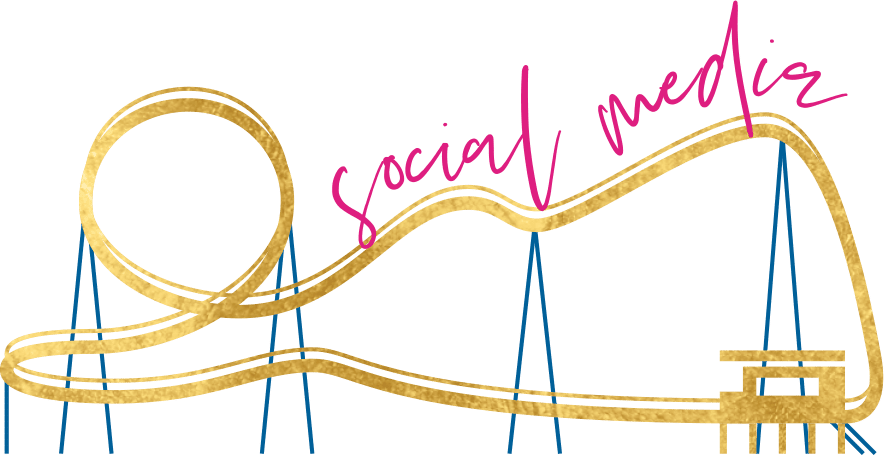Why I won’t read ‘Mummy Blogs’

My first novel had been published to universally glowing reviews and I took great delight in telling anyone who would listen that I was an author. (A fact that my chemist seemed somewhat non-plussed about frankly…)
My days were spent loitering around bookstores trying desperately hard to look like my author photo and indulging in brief stints of author espionage (read: putting copies of my book in front of The Da Vinci Code. And in a sheer moment of desperation The South Beach Diet).
It was an incredibly thrilling time in my life and I didn’t think anything could possibly burst my author bubble of happiness.
Until something did.
You see, I thought, when I wrote The Girl Most Likely that I’d written a comedy. A comedy about a twenty-seven year old woman trying to find her place in the world. A story inspired by my very own quarter-life crisis that involved plenty of humour but also (I hoped) plenty of heart. A story about career expectations. Self-identity. Friendships. Loss. And yes, love.
But that’s not what I wrote, apparently.
Nope. What I actually wrote was ‘chick-lit’. The cutesy name of a new genre encompassing any work of fiction written by women about the contemporary lives of young women. A genre, which quickly became a derisive slur.
What became crystal clear to me that month and in the 10 years since, is that actually ANY stories written by women that explore the hopes, desires, fears and challenges of women are frequently dismissed off-hand. No matter the quality of the writing. No matter that in years to come these stories will provide a window into the feminist leanings, sexuality and self-identity of women of that time. Just ask Jane Austen.
Nope. Terms like ‘Chick-lit‘ and ‘Women’s Fiction’ (remind me again how women’s fiction is different to, you know, FICTION?) infer that narratives centred around the lives of women lack value and intelligence and they exist as yet another way in which women’s lives are trivialised.
And now I’m watching the same level of disdain being dished out to women who blog. Specifically mothers.
To me, ‘Mummy Blogger’ is a patronising term slapped on any woman who regularly or even occasionally dares to write online about motherhood. It’s a term that academic and author Dr Karen Brooks says simultaneously diminishes and positions a woman in a reductive way.
“The term ‘mummy blogger’ manages to keep these women on the margins of culture and forces them to be viewed as non-threatening to mainstream opinion makers. It erects boundaries and keeps them on the outside, as ‘mummies’ who gossip and play where the big boys and girls dare to tread.”
Kate Eltham, CEO of the Queensland Writers Centre agrees.
“If you’re a male writer who blogs, then you’re a social commentator. If you’re a woman writer who blogs, you’re a “mummy blogger” (whether mother or not). And if you are a woman who writes about motherhood (whether in a blog or anywhere else), applying the term “mummy blogger” to what you do undermines all the significance of your artistic and intellectual contribution.
‘Nobody who reads Eglantine’s Cake (the blog of Australian writer Penni Russon), for example could perceive Penni’s writing to be anything other than a serious contribution to the Australian canon of creative non-fiction literature. It’s nuanced and perceptive, not to mention fucking brilliant writing. But because her subject matter is often motherhood, Penni is a “mummy blogger” and the writing on her blog does not receive any serious regard.”
Whether a woman chooses to write about contemporary domestic life and all it encompasses or broader issues outside the home – what does it matter? Why is the former unworthy? And why hasn’t the term ‘Daddy Blogger’ entered the lexicon? Sam de Brito, you know I’m looking at you.
Last week when it was revealed Fairfax was being wheeled into ICU, one TV journo smugly warned viewers that – if we weren’t careful – good journalism would be gone and we’d be left with Mummy Blogs. That’s right, buddy. Give those ‘Mummy Bloggers’ half a chance and they’ll have your front pages filled with inane stories about washing the dishes and getting rid of Timmy’s nits.
Please.
A few months after The Girl Most Likely came out, I went to my publisher and asked her how she felt about the term ‘chick lit’.
“Labels, genres don’t matter,’ she said. “There’s just good writing. It’s as simple as that.”
Good writing. Not chick-lit. Not women’s fiction. Not ‘mummy blogs’ or even ‘mummy porn’.
Just good writing.
So when you ask me if I follow any Mummy Bloggers my answer will always be ‘no’. But do I eat up the works of a series of incredibly talented bloggers who just happen to be female and have kids? You bloody betcha.
(This post first appeared on Mamamia)
categories
You might also like...
1 Comment
Leave a Comment
About Bec
Over the past 25 years Rebecca Sparrow has earned a living as a travel writer, a television publicist, a marketing executive, a magazine editor, a TV scriptwriter, a radio producer, a newspaper columnist and as an author.

social media
subscribe
Want to know if your child is ready to have a social media account?
Enter your details below and I'll send you my 4-point checklist.


I LOVED The Girl Most Likely. I loved that not only were the experiences relevant to me, but so were the places… But I have a different point of view when it comes to the ‘Chick Lit’ term ~ I have always taken it to mean a HIGHER quality of fiction than the every day crap that is spat out left, right and centre. I gave up reading Danielle Steele when I was about 11, and vowed to never read ‘popular fiction’ again. I have never read a John Grisham novel, and I likely never will, but I LOVE chick-lit. The good stuff. I enjoy reading the odd bit of fluff every now and then too (sometimes you just need to escape), but I am more than thankful that this genre has come to be.
🙂